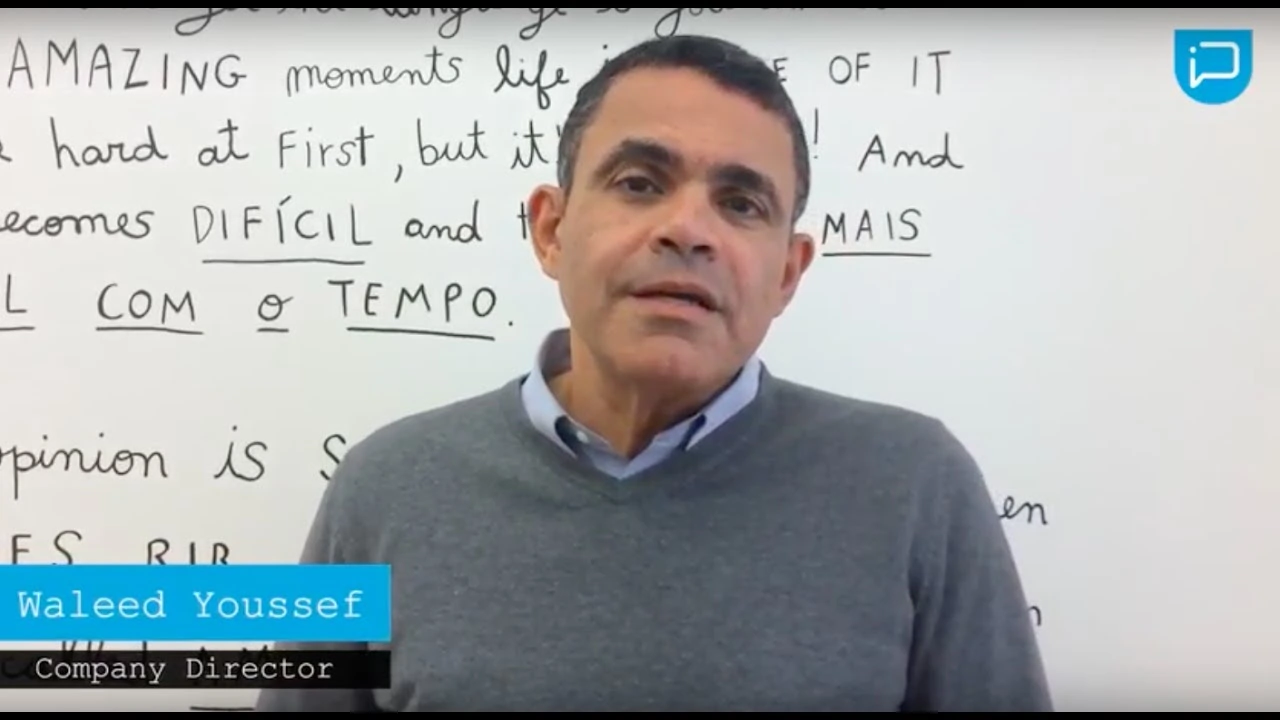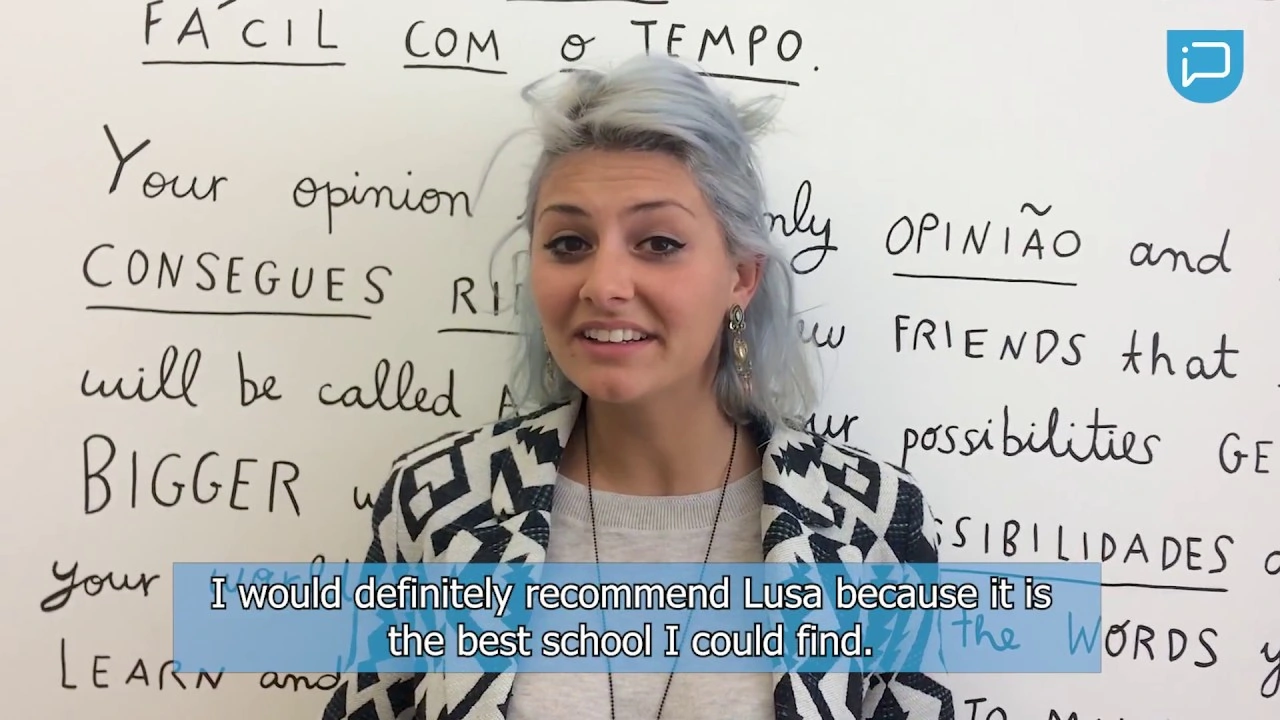Learning a new language is not an easy task, and will make you realize that the two or three one-hour classes you’re attending per week aren’t enough to reach a fluent level. If you’re learning Portuguese and are struggling, please do not despair. Portuguese is not an easy language to learn, especially if your native language isn’t a Latin one, so don’t think that you are the problem. It’s normal to struggle. This is also an incentive for you to not give up as having a skill such as “fluent in Portuguese” will make you feel proud of yourself. But to reach fluency you need to have in mind that there are some methods to improve your Portuguese besides going to your Portuguese course classes and completing the assigned homework. To help you, there are some things you can do.
1. Reading out loud
Reading out loud is a completely different experience than when you’re reading silently. You’ll be able to practice the pronunciation of words and how you articulate them in sentences. It may be weird at first because you’re reading won’t sound as smooth as a native’s but, with practice, you’ll get used to articulating Portuguese words and, ultimately, sound fluent when you read out loud.
2. Be consistent with your practice
This is a tip that applies to all methods as none of them will work if you give up halfway or don’t organize a routine. Just because your classes last one hour, it doesn’t mean that the time you use at home to practice has to last the same. If you have a busy life you could just spare a few minutes (five or ten, for example) to practice. The important thing is to not fall out of touch with the language. You can take a break for one day or two, and that’s alright, but try to avoid going for a week without practicing your Portuguese at home.
3. Repeat the dialogues you hear on the television or from videos
Another great thing you can do to be accustomed to what Portuguese sounds like is by passively hearing native speakers having informal conversations. You can do this by watching a Portuguese TV show or movie or by watching videos from Portuguese YouTubers. You may not understand everything at first, but you’ll leave your subconscious replaying what you heard. To accelerate this process, you can try to repeat the dialogues afterward. Try to say them as naturally as possible to sound like a native.
4. Memorize your favorite Portuguese songs
This has the same effect as watching TV shows or videos, except will have a tune associated with the words, which will make them easier to memorize. Sometimes, adding Portuguese songs to your playlist can be enough for you to get used to the sound of this language and to learn some new words as well.
5. Practice what you want to say in your head
One of the things that instantly make us look less fluent while speaking a language is stuttering or be at a loss for words. We’re saying this not to discriminate you, but to make you pay attention to this aspect. It’s normal to not have fluent speech in a language that we’re still learning, but this could make it harder for others to understand you. A good way to counteract this is by saying in your head first what you want to say out loud.
6. Repeat as many times you want the words you haven’t mastered yet
It’s to be expected that some words may be completely different from the words you’re used to. This tends to make it harder for the learner to memorize its pronunciation and meaning. It can be frustrating, being tired of hearing them in class but, the minute you come out of class you seem to forget what they meant. You can solve this problem, by immediately writing down a word you think will be hard to memorize and repeat it a few times every day at home.
7. Don’t be afraid to make mistakes
Having afraid of making mistakes is what stops you from improving your Portuguese. We understand it’s perfectly normal to be afraid of saying something wrong, but what is also normal is to make mistakes. Mistakes help you to improve and don’t forget that the hardest critic is yourself. Most native people who you will talk with can be very patient and will be eager to help you if you need. They already appreciate the fact that you’re trying.
8. Join groups to talk with natives or other Portuguese learners
Nowadays it’s even easier to find people with whom you can practice your Portuguese. There are thousands of groups online and hundreds of apps specifically designed to help people improve the level of the language they’re learning. You can also meet new people and make new friends in the process, all in the comfort of your home.
9. Listen to as many Portuguese audios as possible
Like some methods above have mentioned, it’s important to surround yourself with as much Portuguese as possible. It’s proven that one of the fastest ways you can learn a language is by living in its country, but since you can’t do that, you can try the next best thing and watch and listen to as many things in Portuguese as possible.
10. Try to say things you would normally say in your language in Portuguese
This method will make your brain actively think about how to say something in Portuguese. You can do this on your own, for instance when you’re at home doing day-to-day chores and get lost in your thoughts. In these situations, try to stop for a moment and try to say what you were thinking in Portuguese. Once you’ve done it, repeat as many times as you need until it sounds fluent. Next time, when you’re having a conversation in Portuguese, the sentences you practiced formulating in your head will come out naturally.
Extra 11. Write every single day
Think of writing as a language gym. Speaking is always more difficult than writing and listening. The speed at which dialogues between people happen requires a fluency that intimidates anyone just starting out. There is no time to think and organise words neatly and the brain becomes disorganised. Writing is the student’s opportunity to think slowly and consciously think and select the elements he wants for his sentence. By carrying out this daily exercise, one gains the necessary automaticity that gives the speaker the desired fluency.
Extra 12. Take risks
It is common for someone who is learning a new language to be afraid to use the few, but valuable words in a real situation. “After all, everyone will realise I’m not Portuguese and reply to me in English straight away.” Think again and see that those moments are gold. Don’t be afraid and take a risk. So that they don’t answer you in English, proceed with confidence, in a firm voice and at a good volume so that they don’t ask you to repeat yourself, which for many people is an extra reason to feel embarrassed and avoid the risk. Don’t wait until you have a very advanced level to speak in real situations. Start with the real context from the beginning. After all, error is our best friend!
Extra 13. How to make Portuguese people speak Portuguese
Let’s be realistic! The Portuguese love to speak languages and will use every opportunity they get. So, don’t get upset with your Portuguese boyfriend or girlfriend, friend, husband or wife. Make an agreement with them and set a daily conversation time in Portuguese. For example, agree to speak first at breakfast, then at every meal, then later, when you feel more confident and willing, you can set a whole day section: Saturday morning, for example.
In shops and public places, don’t be shy. Whenever you are answered in English, ask politely: can we speak in Portuguese, please?
You don’t have to follow all these methods to become fluent in Portuguese, but choose at least three or five of these methods that you feel that most agree with you to improve your Portuguese, and you will be on the right path.








